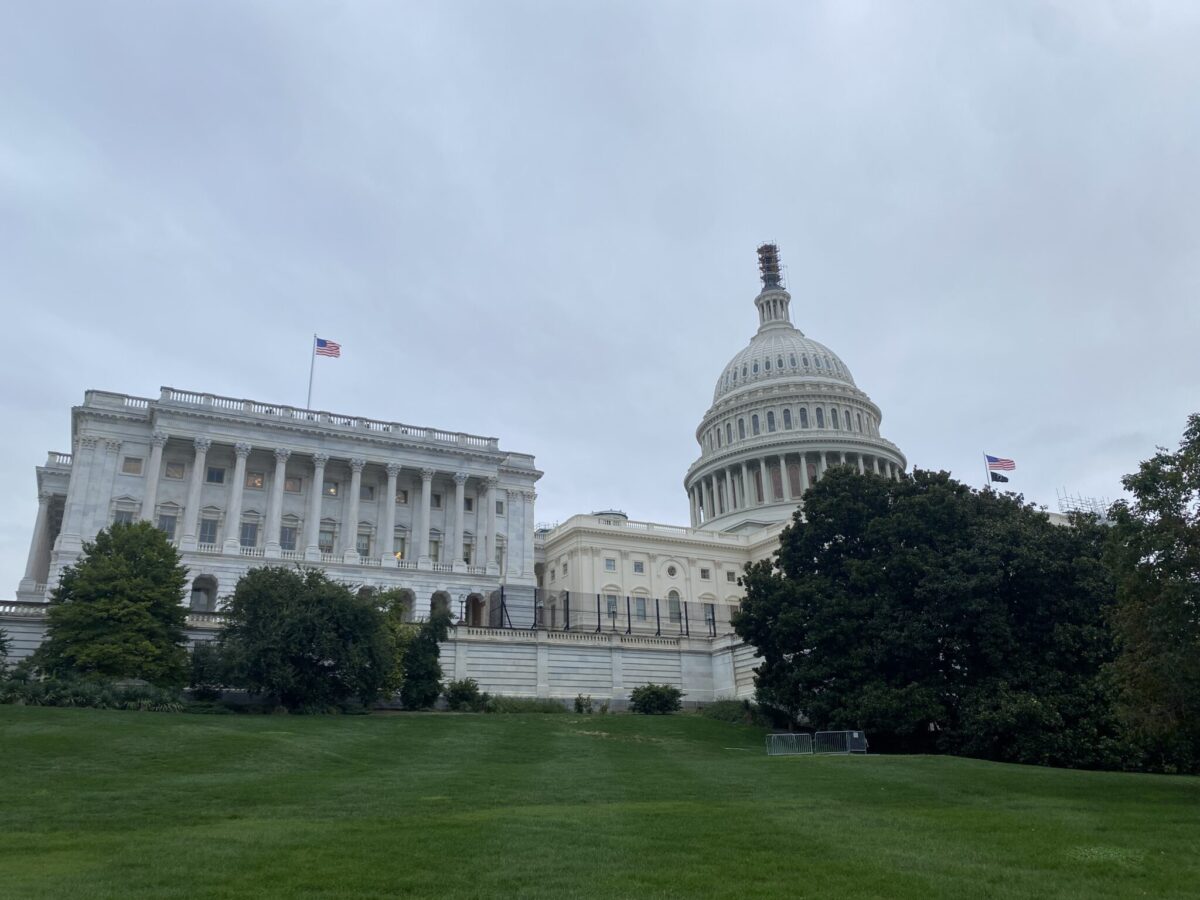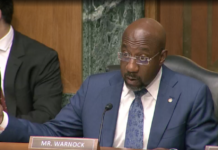
(GA Recorder) — A new leader is set to run Georgia’s State Election Board meeting Wednesday for the first time since the Legislature passed controversial election changes shifting the panel’s power.
Vice-Chair Rebecca Sullivan will replace Secretary of State Brad Raffensperger as head of the board that oversees state election laws. Removing the state’s top election chief as a voting member of the panel also comes as the board gets newfound authority to intervene in managing local elections.
Various civil rights groups have criticized changes in the board’s operation as among the most troubling measures in the sweeping legislation Republicans ushered through in March in their attempt to restore confidence in the election system.
The new law gives the General Assembly the ability to appoint the majority of the State Election Board by removing the secretary of state as the chair. But with the session not resuming until January, Gov. Brian Kemp has the authority to fill that role.
Kemp’s office did not respond to a Georgia Recorder email Monday afternoon asking about the timeline for appointing a new chair.
Election board member David Worley said he believes that removing Raffensperger’s power over the board is retaliation against the GOP secretary of state for mailing out 7 million absentee ballot applications during the pandemic last year.
And that became a political problem for Raffensperger when a record 1.3 million Georgians cast absentee ballots by mail in the Nov. 3 general election. Many Republicans falsely blamed former President Donald Trump’s loss on voter fraud as Raffensperger defended the system’s integrity, Worley added.
Now there are new voting laws based on false claims of fraud in the 2020 presidential election that direct a board dependent on the secretary of state’s office to provide everything from advice to investigators to handle cases.
“Beyond that, this change doesn’t really correct any of the issues that the Republicans in the General Assembly seem to be concerned about,” said Worley, an attorney and Democratic board appointee to the GOP-leaning board. “It does not take away the secretary of state’s ability to certify election results. It doesn’t take away the Election Division of the secretary of state’s office role in supervising local election boards and working with them.”
Leading up to the 2021 Legislative session, Republican House Speaker David Ralston pushed for eroding the secretary of state’s autonomy.
Ralston said that taking away some of Raffensperger’s power was a consequence of his refusal to participate in House legislative hearings following the general election. Trump’s personal attorney, Rudy Giuliani, testified at state Senate hearings in December, where he spun discredited conspiracy theories about a “stolen” election.
Ralston said officials have long raised questions about the lengths of the secretary of state’s power.
“I think that for me at least, was the straw that broke the camel’s back,” Ralston said recently on GPB’s Political Rewind. “I realized then that he and I just had completely different views of the Legislature in being the body that passes election law changes.”
While he’s spoken out against losing his state board voting power, Raffensperger said he agrees with the new law giving the state board the authority to temporarily take over counties with election boards with a history of problems.
Rep. Barry Fleming, a Harlem Republican who helped author the extensive voting bill, has called the provision a better way to hold struggling election boards more accountable while returning local control once the problems are resolved.
But a takeover could be misused against predominantly Democratic strongholds in Georgia where the GOP controls the state government, said Judith Browne Dianis, executive director of Advancement Project National Office, which filed the sixth federal lawsuit Monday challenging Georgia’s new law. The first one was filed soon after the governor signed the new election changes into law.
The lawsuit, filed on behalf of the Concerned Black Clergy, the Georgia Latino Alliance for Human Rights, Faith in Action, and others, claim Georgia’s voting changes disenfranchise Black and Brown voters and other marginalized communities by restricting the use of absentee drop boxes and other ballot access.
“As the browning of America happens, what we are seeing is whites trying to consolidate their power at the state level, trying to wipe out the power of the local folks who were starting to see more Black and brown people elected to local office having discretion over local budgets,” Dianis said.
Worley said also opposes the election board’s new ability to remove local election operations.
The state voting board already had the authority to recommend taking legal action against local election boards if election laws are broken.
Under the new law, the state voting board, county commission, or a local legislative delegation could request a performance review over local elections management, which could result in the state board suspending local elections boards.
“The way we enforce uniformity is by issuing rules and regulations, which sort of guide the counties in how they’re supposed to carry out the laws,” Worley said. “We can do that already, and we don’t need to have the ability to take over the local election board in order to make sure that the laws are carried out.”







